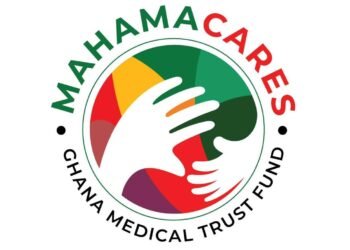Head of Public Relations at the Ghana School Feeding Secretariat, Alfa Siba, has urged school feeding caterers to reconsider their decision to withdraw their services.
He has assured the caterers cooking for these students that funds will be released soon to pay off arrears owed them.
“We are engaging the relevant stakeholders and the caterers to see how best we can resolve the issue. Just last week, we paid the second term of the 2022 academic year to all the districts. So, we are appealing to the caterers to rescind their decision not to cook while we continue the engagements.”
Alfa Siba
His comments followed some caterers in the Ashanti Region participating in the government’s school feeding program going on strike on Tuesday, April 4, 2023. The caterers demanded payment of arrears and an increase in the feeding grant.
Meanwhile, Executive Director of Africa Education Watch, Kofi Asare, has revealed that a 200 percent increase in the cost of the school feeding programme is required for the provision of quality food to beneficiaries.
According to him, this is in response to the ongoing demand for an increase in the cost of feeding and the payment of arrears owed caterers under the initiative. He revealed that percentage increase will close the GHC3 billion gap with the intervention to improve the quality of food provided to students.
Mr Asare stated that the government must adopt the automatic adjustment formula of financing the policy to keep it from collapsing.
“What the caterers need is not a 10 percent adjustment in the unit cost of feeding. It wouldn’t do anything. At least a 200 percent increase in the feeding budget is GHC3 billion and that is required to provide decent food for children in basic schools to be consistent with what government is paying for in providing lunch at the SHS level.”
Kofi Asare
Prior to this, Mr Asare expressed the need for the ministry of finance to revise its medium-term expenditure allocation to school feeding programme.
He revealed that the monies allocated to basic schools for feeding is woefully in adequate and must necessarily be increased. This, he explained, is to ensure an improvement in the quality of food being served students. He stated that per the medium-term projection in the ministry of finance’s budget presented last year, an amount of GHC969 million is projected for allocation in 2024 but in 2025, it actually declines to about GHC770 million.
Implementation of policy document of school feeding programme
Elsewhere, Executive Director of the Institute for Education Studies (IFEST), Dr Peter Anti, has urged government to go back to the school feeding programme’s policy document to implement the policy as enshrined.
He expressed that the government’s move away from the principles of implementation of the programme in the policy document is a major contributor to the challenges that have bedeviled the school feeding programme.
Mr Anti noted that the issue of funding for the programme has been outlined in the policy framework and has urged government to look at it and implement it just as stated.
“Go back to the policy document; implement the policy as enshrined in the policy document and that is the first angle to look at. Because in the policy document it is clearly stated the various sources of funding for the policy. I think there are about five different policies that the document speaks about; the government is one, I think the private sector, fundraising by the school feeding secretariat… So, go back to the policy document and look at it.”
Dr Peter Anti
READ ALSO: Deputy Lands Minister Commissions Afransie Community Mining Scheme























